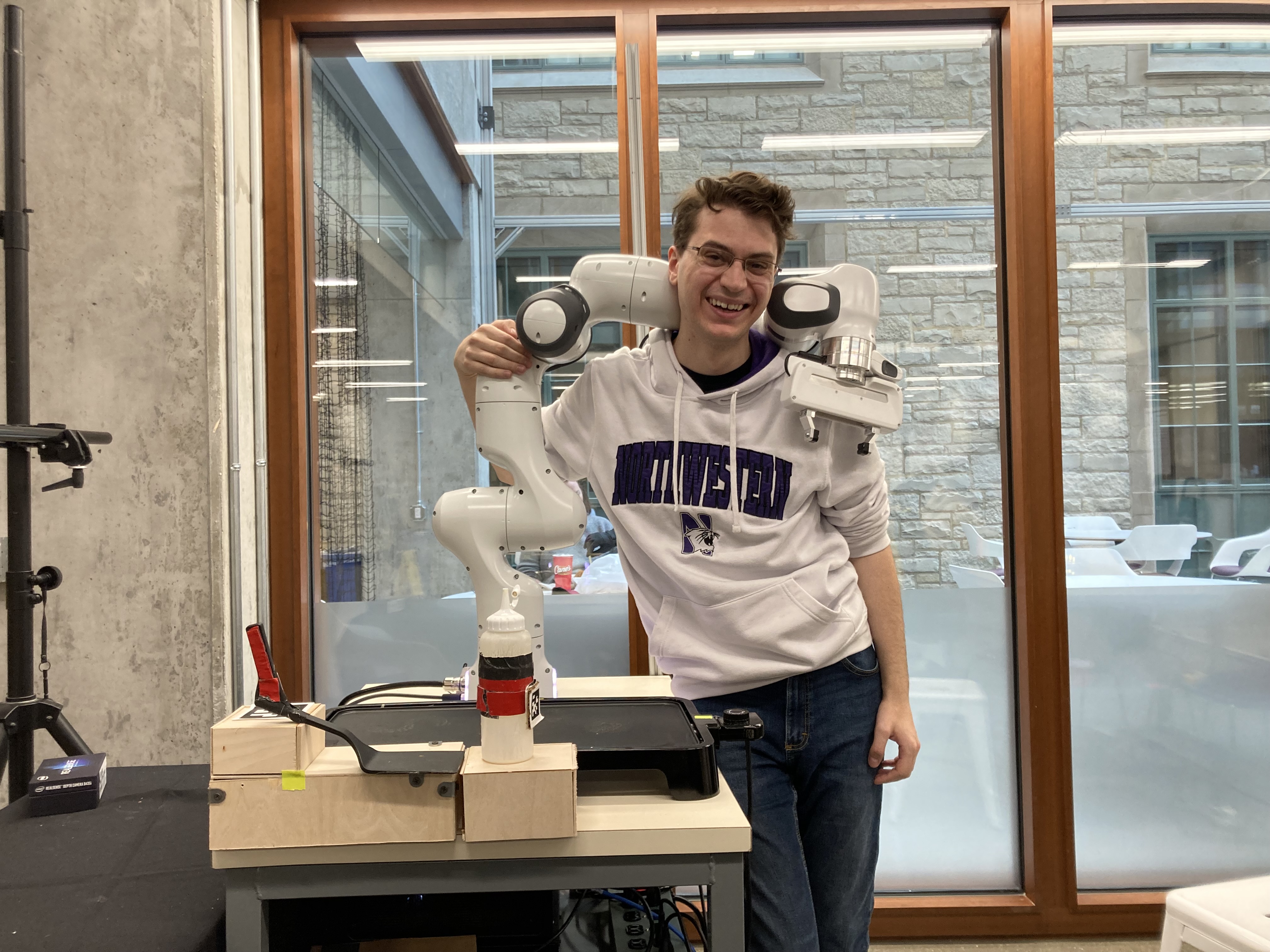Bringing Robotics to the Public
Project
Best Friends with a Robot!
This spring, I had the privilege to perform some outreach at three local events: a Robot Block Party at Chicago’s Museum of Science and Industry, a Career Day for Girls in the Chicago area, and a Biotech Nexus event, attended by high-schoolers from Lindblom Math and Science Academy!
I was able to showcase three projects at these events: Robotic Pancake Chef, Tactile Texture Classification, and Deep Learning for Gesture Recognition. Check out Northwestern MSR's 'Inside Our Program' article, written by Marc Zarefsky.
The article in full:
Students in Northwestern Engineering’s Master of Science in Robotics (MSR) program recently showcased their creations for the public.
The students’ work was featured at three events – the Robot Block Party at Chicago’s Museum of Science and Industry, a Career Day for Girls in the Chicago area, and the Biotech Nexus event hosted by Northwestern Engineering's Master of Biotechnology program (MBP). Each gathering was an opportunity for people to get up close and personal with student-designed robots and machine learning projects.
“It was great to talk to a wide variety of people with all sorts of backgrounds regarding robotics," said James Avtges, who demonstrated his work at all three events. “Being able to explain everything that’s going on technically to kids and people with non-technical backgrounds was especially fun.”
Fun, yes; but not without its challenges.
One of Avtges’ projects featured a robot designed to autonomously make and serve a pancake. In the lab, it was perfectly calibrated to use color-sensing computer vision to sense a bottle of pancake batter, a spatula, and a griddle. Yet at the Museum of Science and Industry, lighting conditions were vastly different from the bright fluorescent lights of the lab.
“For the first hour or two, we were busy fixing the program, since we kept missing the pancake with the spatula,” said Avtges, who developed the robot with fellow MSR students Anna Garverick and Andru Liu.
Once adjusted, the pancake-making robot was a hit with the crowd, especially the kids.
That is one of the main purposes for taking the work of MSR students to the public – to show adults and children alike how the future of robotics is being forged right now, even if it is sometimes filled with problems like light-sensitive pancake flippers.
“I think it’s important to show people what working on robots is really like,” Avtges said. “Robots break down and programs crash. Showing people what the field is really like and hopefully helping to remove some misconceptions can be really valuable.”
The hope is this type of public interaction can also reduce gender discrepancies in the field. The Career Day for Girls event brought out more than 300 female-identified middle school and high school students from around the Chicago area to learn more about careers in different fields of science and math.
Avtges once again showcased the pancake flipper along with Garverick and Liu.
For Biotech Nexus, Avtges and his classmates did virtual demonstrations for high school students from Chicago Public Schools' Lindblom Math and Science Academy. Avtges showcased the pancake flipper, a tactile texture sensing research project, and a deep learning project that recognizes hand gestures in order to control a drone.
With each of the events, Avtges' goal was simple: inspire more young people to enter the industry.
“Robotics can be a difficult field to start studying since there’s a lot of background knowledge in engineering and computer science," he said. “Most of my MSR peers and other robotics engineers that I’ve met took meandering paths through university and their early careers to get into robotics, so the opportunity to answer questions from students, parents and teachers about career options and making those paths clearer is definitely important to me.”
It wasn’t just the younger students who were learning during these events. Avtges said he and his fellow MSR program students picked up some important knowledge.
“It’s always a good learning experience to practice communicating technical details to a wide variety of people,” he said. “It’s good to know what other people know and don’t know, and what perspectives they have. We can often get caught up in our own bubble as students, so it’s good to talk to and hear from people outside of academia.”